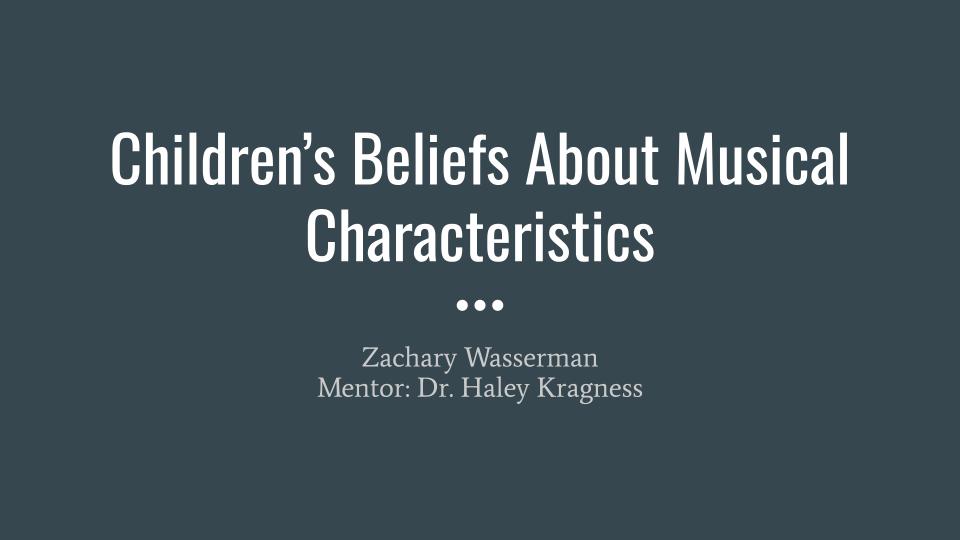
Beliefs about Musical Attributes
Author:
Zachary Wasserman ’26
Co-Authors:
Faculty Mentor(s):
Haley Kragness, Psychology
Funding Source:
Helen E. Royer Undergraduate Research Fund
Abstract
Though people dance, sing, and interact musically all across the world, there is substantial individual variation in musical abilities. What do children and adults believe about where musical abilities come from? We investigated 7- to 8-year-old children’s (N = 48) and adult’s (N = 100) beliefs about origins of musical abilities. First, children gave open-ended explanations based on prompts about musical and non-musical attributes (“There is a person who is very good at playing cello. People always clap when they play. Why do you think they are good at playing cello?”). Then, both adults and children were asked to rate how much genetic factors, environmental factors, and personal choices explained those same attributes (1 – “not at all” to 5 – “just about all”). In open-ended explanations, children tended to emphasize personal choices (e.g., “he practices a lot”). For positively-worded scale ratings, adults consistently rated personal choices highest and genetic factors lowest in importance, but again considered genetic factors to be relatively important for singing and rhythmic abilities. For negatively-worded questions, adults rated the environment highest for some of the characteristics, the outliers being singing and cello being highest in genetics and personal choice respectively. In contrast, children consistently rated environmental factors as least important, and rated genetic and personal choice factors as approximately equally important. Findings suggest that children and adults both emphasize practice and personal effort in musical skill acquisition. By adulthood, however, adults refine their beliefs about the relative importance (or unimportance) of genetic contributions to musical attributes.